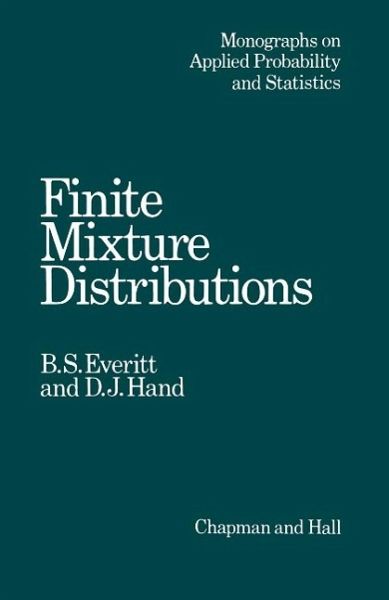
Finite Mixture Distributions (eBook, PDF)
Versandkostenfrei!
Sofort per Download lieferbar
40,95 €
inkl. MwSt.
Weitere Ausgaben:

PAYBACK Punkte
20 °P sammeln!
Finite mixture distributions arise in a variety of applications ranging from the length distribution of fish to the content of DNA in the nuclei of liver cells. The literature surrounding them is large and goes back to the end of the last century when Karl Pearson published his well-known paper on estimating the five parameters in a mixture of two normal distributions. In this text we attempt to review this literature and in addition indicate the practical details of fitting such distributions to sample data. Our hope is that the monograph will be useful to statisticians interested in mixture ...
Finite mixture distributions arise in a variety of applications ranging from the length distribution of fish to the content of DNA in the nuclei of liver cells. The literature surrounding them is large and goes back to the end of the last century when Karl Pearson published his well-known paper on estimating the five parameters in a mixture of two normal distributions. In this text we attempt to review this literature and in addition indicate the practical details of fitting such distributions to sample data. Our hope is that the monograph will be useful to statisticians interested in mixture distributions and to re search workers in other areas applying such distributions to their data. We would like to express our gratitude to Mrs Bertha Lakey for typing the manuscript. Institute oj Psychiatry B. S. Everitt University of London D. l Hand 1980 CHAPTER I General introduction 1. 1 Introduction This monograph is concerned with statistical distributions which can be expressed as superpositions of (usually simpler) component distributions. Such superpositions are termed mixture distributions or compound distributions. For example, the distribution of height in a population of children might be expressed as follows: h(height) = fg(height: age)f(age)d age (1. 1) where g(height: age) is the conditional distribution of height on age, and/(age) is the age distribution of the children in the population.
Dieser Download kann aus rechtlichen Gründen nur mit Rechnungsadresse in A, B, BG, CY, CZ, D, DK, EW, E, FIN, F, GR, HR, H, IRL, I, LT, L, LR, M, NL, PL, P, R, S, SLO, SK ausgeliefert werden.


